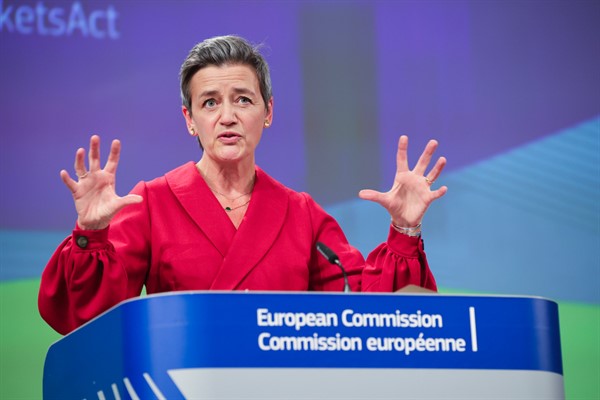Regulating digital content and platforms was never going to be easy. As the European Union continues what is expected to be a multi-year process to turn its draft Digital Services Act into law, France appears to have jumped the gun and enacted its own version of the proposed regulations. In a 12-page rebuke couched as “observations,” the European Commission warned that France’s law “poses a risk to the single market in digital services and to Europe’s prosperity.” Just as it prepares to assume the EU’s rotating six-month presidency next January, France seems set on a collision course with the institutions charged with regulating digital content within the bloc.
At the heart of this legislative spat are tensions between EU member states and the commission on the relationship between national and EU-wide regulation of content and enforcement mechanisms, as well as policy differences on approaches to regulating online speech and Big Tech platforms.
The EU approach is set out in its flagship Digital Services Package, which was published as a draft in June 2020 and is now going through the lengthy consultation processes prior to becoming law. One of the package’s two pillars, the Digital Markets Act, or DMA, aims to foster innovation and competition on a level playing field within the European Single Market. The other, the Digital Services Act, or DSA, proposes a new regime to provide clarity on the liability of digital platform providers for user-generated content they host, updating rules that are now more than 20 years old.

